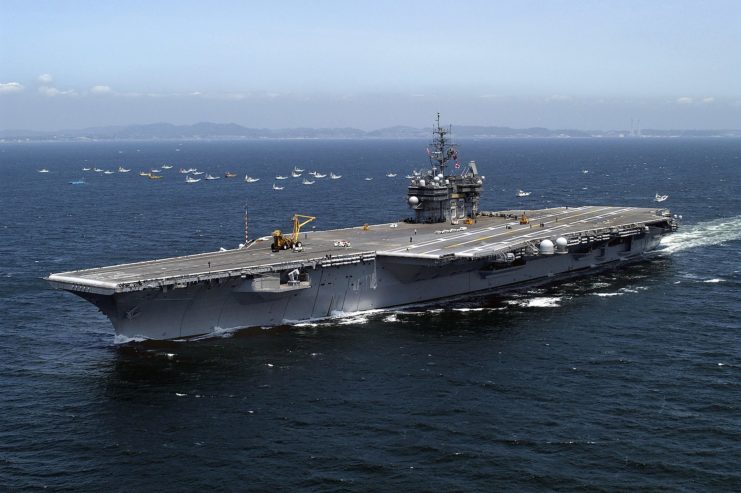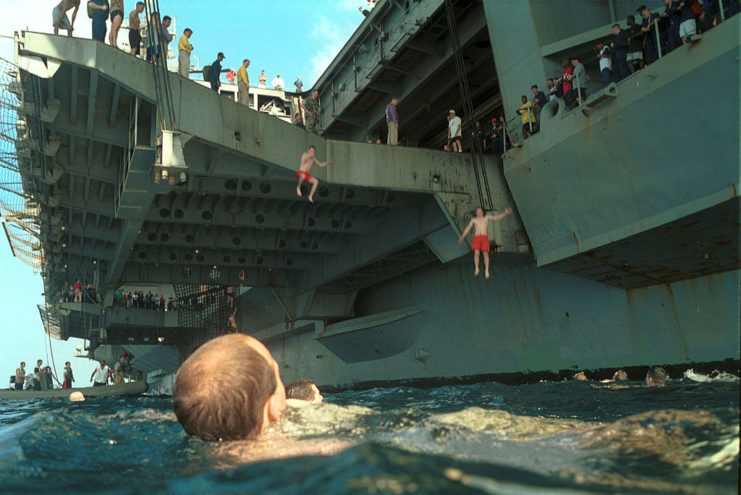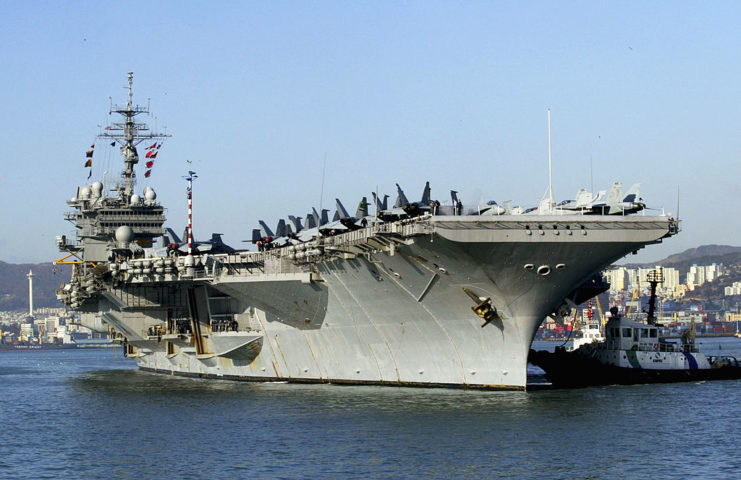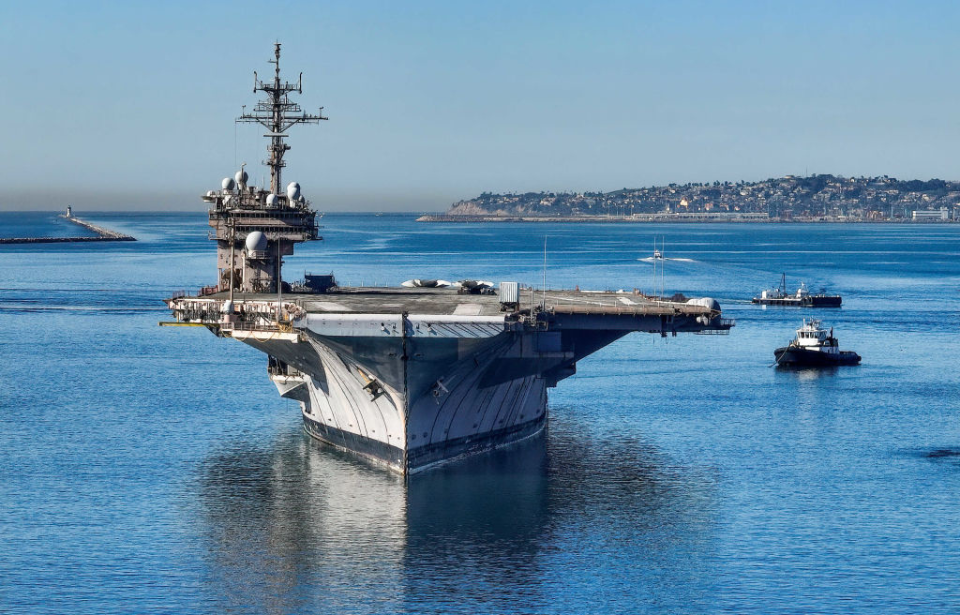In May 2022, the decommissioned supercarrier USS Kitty Hawk (CV-63) arrived in Brownsville, Texas for scrapping. The iconic vessel served the US Navy for nearly 50 years and cost the military a whopping $264 million ($2.5 billion today) to build in 1961. In 2021, Kitty Hawk was sold to a scrap company for just one cent. While the cost of such an iconic vessel is contested, her nearly five decades of service is priceless.
The USS Kitty Hawk captivated military personnel and civilians alike
The USS Kitty Hawk was laid down by the New York Ship Building Corporation in December 1956 as the first of three Kitty Hawk-class aircraft carriers. Launched in May 1960 and commissioned into service a year later, she first traveled to South America, before performing cruises off the coast of Japan.
After being deployed to southeast Asia during the Vietnam War and undergoing modifications to turn her into a multi-purpose carrier, Kitty Hawk spent the remainder of the 1970s in the Western Pacific, picking up Vietnamese refugees and providing support following the assassination of Korean President Park Chung-hee. Following this, she was sent to the Arabian Sea during the Iran hostage crisis, and for the remainder of her commission served deployments in the Middle East and the Pacific.

Equipped with RIM-7 Sparrow surface-to-air missiles (SAMs), two RIM-116 Rolling Airframe Missiles (RAMs) and two Phalanx CIWS gun-based close-in weapon systems, Kitty Hawk was a Navy marvel. Between 70 and 85 aircraft were housed on the supercarrier, including Boeing F/A 18 E/F Super Hornets, Northrop Grumman EA-6B Prowlers and E-2C Hawkeyes, Sikorsky SH-60F and HH-60H Sea Hawk helicopters, and a Grumman C-2A Greyhound.
Kitty Hawk also saw her fair share of celebrities. US President John F. Kennedy, Nancy Sinatra, and author John Steinbeck were just some of the famous individuals to grace her decks, and Disney even used the aircraft carrier to film the 1966 movie, Lt. Robin Crusoe, U.S.N.

In December 1967, Kitty Hawk became the first aircraft carrier to be awarded the Presidential Unit Citation for her exceptional service during the Vietnam War, particularly during the Tet Offensive.
Sold down the river, despite veterans’ pleas
In 2005, the Navy announced the nuclear-powered aircraft carrier USS George Washington (CVN-73) would replace Kitty Hawk at United States Fleet Activities Yokosuka, Japan.
The decommissioning process began in 2008, and the vessel was officially retired in 2019 in Bremerton, Washington. More than 2,000 people filled Kitty Hawk’s hangar bay during a ceremony to honor the legacy of the Navy’s oldest active warship on the day of her retirement.

More from us: The USS Barb (SS-220) Compiled One of the Most Outstanding Records of WWII
Are you a fan of all things ships and submarines? If so, subscribe to our Daily Warships newsletter!
While her fate was still undecided, the USS Kitty Hawk Veterans Association raised $5 million to preserve the carrier as a museum. Unfortunately, the Navy decided against the plan, in favor of scrapping the ship. In October 2021, the service sold Kitty Hawk and another carrier, the USS John F. Kennedy (CV-67), to International Shipbreaking Limited for one cent each.
As of May 2022, Kitty Hawk has reached her final destination in Texas to begin the scrapping process, which is expected to take between five and 10 years, at a cost of around $750 million.
